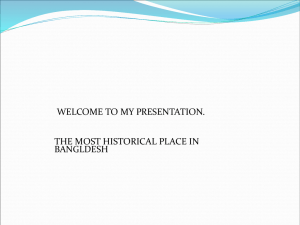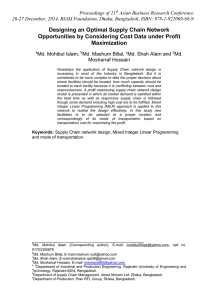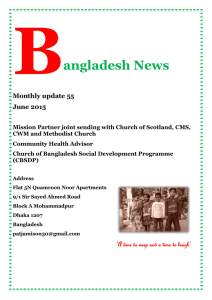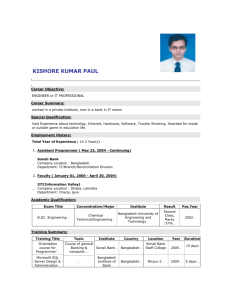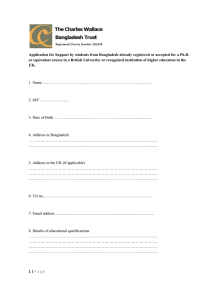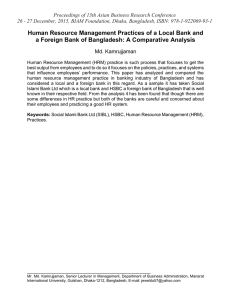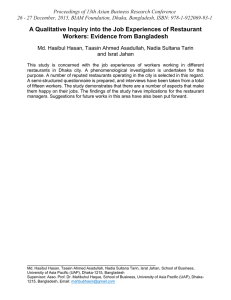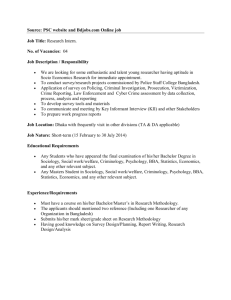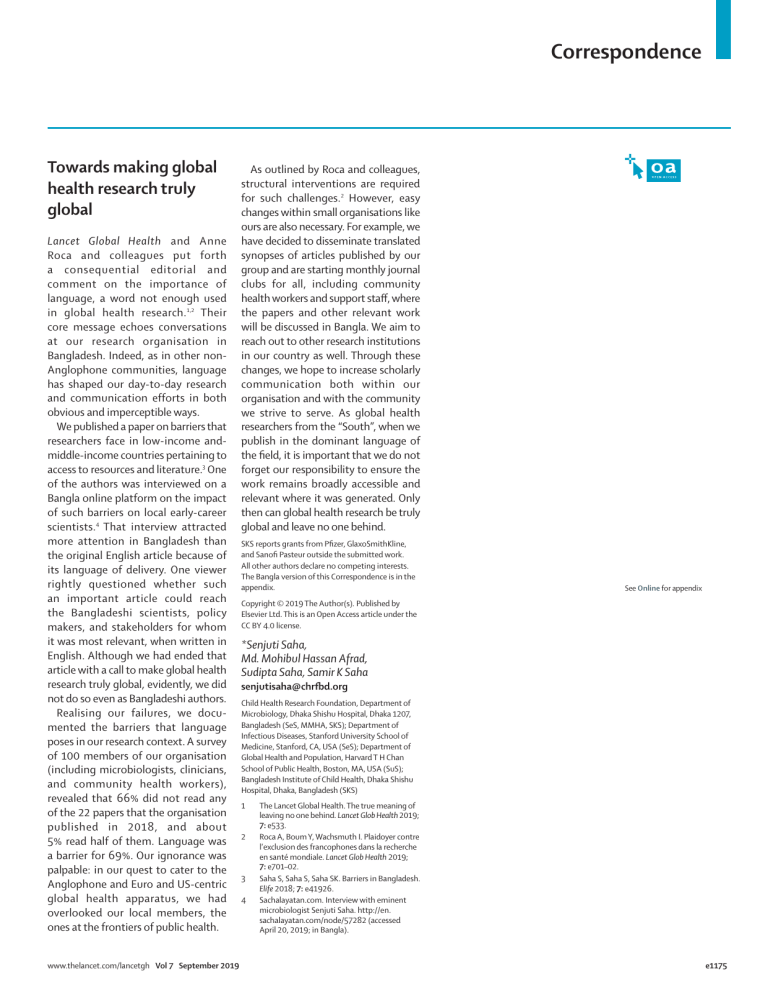
Correspondence Towards making global health research truly global Lancet Global Health and Anne Roca and colleagues put forth a consequential editorial and comment on the importance of language, a word not enough used in global health research.1,2 Their core message echoes conversations at our research organisation in Bangladesh. Indeed, as in other nonAnglophone communities, language has shaped our day-to-day research and communication efforts in both obvious and imperceptible ways. We published a paper on barriers that researchers face in low-income andmiddle-income countries pertaining to access to resources and literature.3 One of the authors was interviewed on a Bangla online platform on the impact of such barriers on local early-career scientists.4 That interview attracted more attention in Bangladesh than the original English article because of its language of delivery. One viewer rightly questioned whether such an important article could reach the Bangladeshi scientists, policy makers, and stakeholders for whom it was most relevant, when written in English. Although we had ended that article with a call to make global health research truly global, evidently, we did not do so even as Bangladeshi authors. Realising our failures, we docu­ mented the barriers that language poses in our research context. A survey of 100 members of our organisation (including microbiologists, clinicians, and community health workers), revealed that 66% did not read any of the 22 papers that the organisation published in 2018, and about 5% read half of them. Language was a barrier for 69%. Our ignorance was palpable: in our quest to cater to the Anglophone and Euro and US-centric global health apparatus, we had overlooked our local members, the ones at the frontiers of public health. www.thelancet.com/lancetgh Vol 7 September 2019 As outlined by Roca and colleagues, structural interventions are required for such challenges.2 However, easy changes within small organisations like ours are also necessary. For example, we have decided to disseminate translated synopses of articles published by our group and are starting monthly journal clubs for all, including community health workers and support staff, where the papers and other relevant work will be discussed in Bangla. We aim to reach out to other research institutions in our country as well. Through these changes, we hope to increase scholarly communication both within our organisation and with the community we strive to serve. As global health researchers from the “South”, when we publish in the dominant language of the field, it is important that we do not forget our responsibility to ensure the work remains broadly accessible and relevant where it was generated. Only then can global health research be truly global and leave no one behind. SKS reports grants from Pfizer, GlaxoSmithKline, and Sanofi Pasteur outside the submitted work. All other authors declare no competing interests. The Bangla version of this Correspondence is in the appendix. See Online for appendix Copyright © 2019 The Author(s). Published by Elsevier Ltd. This is an Open Access article under the CC BY 4.0 license. *Senjuti Saha, Md. Mohibul Hassan Afrad, Sudipta Saha, Samir K Saha senjutisaha@chrfbd.org Child Health Research Foundation, Department of Microbiology, Dhaka Shishu Hospital, Dhaka 1207, Bangladesh (SeS, MMHA, SKS); Department of Infectious Diseases, Stanford University School of Medicine, Stanford, CA, USA (SeS); Department of Global Health and Population, Harvard T H Chan School of Public Health, Boston, MA, USA (SuS); Bangladesh Institute of Child Health, Dhaka Shishu Hospital, Dhaka, Bangladesh (SKS) 1 2 3 4 The Lancet Global Health. The true meaning of leaving no one behind. Lancet Glob Health 2019; 7: e533. Roca A, Boum Y, Wachsmuth I. Plaidoyer contre l’exclusion des francophones dans la recherche en santé mondiale. Lancet Glob Health 2019; 7: e701–02. Saha S, Saha S, Saha SK. Barriers in Bangladesh. Elife 2018; 7: e41926. Sachalayatan.com. Interview with eminent microbiologist Senjuti Saha. http://en. sachalayatan.com/node/57282 (accessed April 20, 2019; in Bangla). e1175
